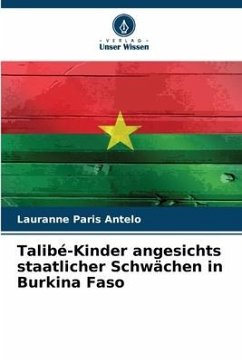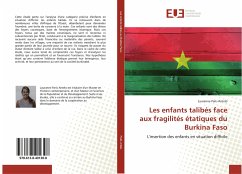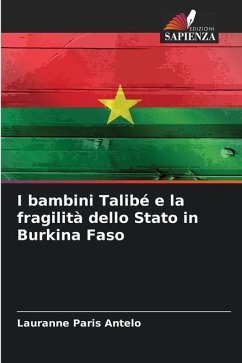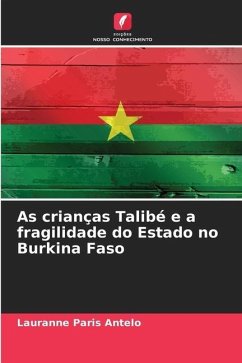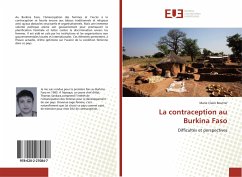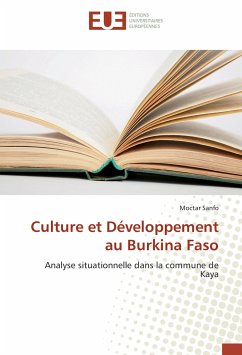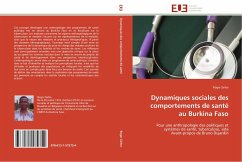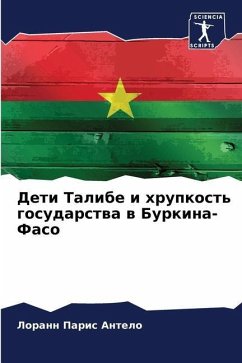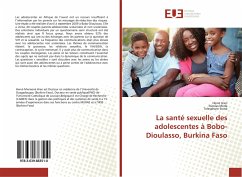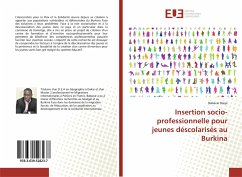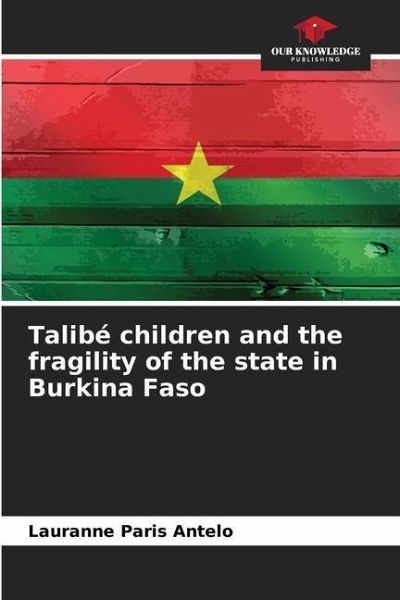
Talibé children and the fragility of the state in Burkina Faso
Versandkostenfrei!
Versandfertig in 6-10 Tagen
57,99 €
inkl. MwSt.

PAYBACK Punkte
29 °P sammeln!
This study focuses on the analysis of a specific category of children in difficult situations: talibé children. They can be found in many West African cities, wandering around begging for alms with a tin can in their hands. These children are pupils of Koranic homes, the basis of Islamic education. But these homes, run by Koranic teachers, are neither recognised nor subsidised by the state, leading to the marginalisation of the talibés. With no financial or material support from their parents, who often remain in the villages, the majority of these children beg for food most of the day. They...
This study focuses on the analysis of a specific category of children in difficult situations: talibé children. They can be found in many West African cities, wandering around begging for alms with a tin can in their hands. These children are pupils of Koranic homes, the basis of Islamic education. But these homes, run by Koranic teachers, are neither recognised nor subsidised by the state, leading to the marginalisation of the talibés. With no financial or material support from their parents, who often remain in the villages, the majority of these children beg for food most of the day. They are at risk of moving from the status of a talibé child to that of a street child. In this study, we have tried to understand these homes and to analyse the realities that enable and promote their existence. Our hypotheses are that a certain weakness of the state allows their emergence, their activity, and their permanence within Burkinabe society.



